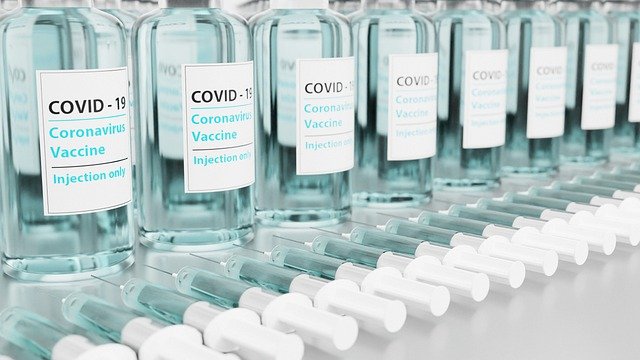Just how difficult the fight against the COVID-19 virus is is shown by the figures from last Saturday, March 27: 8868 new infections, the highest number since Jan. 7, 2021. For all of us, the high number of infections means severe limitations in social contacts and restriction in our freedom of movement. The government is looking for ways to allow its citizens - in the most responsible and safe way possible - to regain as much freedom of movement as possible.

One solution could lie in the introduction of test certificates. These test certificates could be used temporarily during the phased scaling down of measures to control the covid-19 pandemic. The context in which the possibility of using the test certificates is developing concerns the Health Council's opinion "Test certificates for SARS-CoV-2: ethical and legal conditions" of January 14, 2021, No. 2021/02. The proposal of March 17, 2021 titled "Proposal for a Regulation of the European Parliament and of the Council on a framework for the issuance, verification and acceptance of interoperable certificates on vaccination, testing and recovery to facilitate free movement during the COVID-19 pandemic (Digital Green Certificate)" (1) and in our country the Temporary law on test certificates covid-19 that will be anchored in the Public Health Act.
It is emphatically not a vaccination certificate. After all, vaccinations are not mandatory. With this certificate of testing, the possessor must demonstrate that he or she is showing that he or she is not infected at the time of showing. This may be because a person has been vaccinated. If someone is unwilling or unable to do so, a test must have been taken recently with a negative test result.
It is too premature now to discuss the form and conditions of test evidence. However, it is important to consider the fundamental principles affected by these developments. In particular, the right to privacy. After all, citizens must disclose medical data indicating that they have not been infected. This raises the question of whether this does not violate the General Data Protection Regulation (GDPR).
The answer is no, see Article 9(2) i AVG. The AVG stipulates that special data may be processed if the processing is necessary for reasons of public interest in the area of public health, such as protection against serious cross-border health hazards, and appropriate and specific measures to protect the rights and freedoms of the data subject are provided for under Union or Member State law. The legislator meets this requirement by exercising due diligence and giving the use of test evidence a temporary legal basis and subjecting it to strict conditions, in accordance with the requirements of the AVG.
In the public discussion, it seems to be constantly lost sight of the fact that Lady Justice's essential tool is the scales on which the interests at stake must be weighed again and again.
The one-sided highlighting of violation of the right to privacy loses sight of the fact that there is more at stake, namely the fundamental social right to which we are all entitled as citizens and which is enshrined in article 22 of the Constitution: the Dutch government is obliged to take measures to promote public health. This obligation does not stand alone, but corresponds to what is stipulated in international treaties, such as Art. 12 of the International Covenant on Economic, Social and Cultural Rights (ICESCR), Article 11 of the European Social Charter, Article 35 of the European Charter of Fundamental Rights of the European Union and Article 2 European Convention for the Protection of Human Rights and Fundamental Freedoms (ECHR). Thus, there is a fundamental and human rights mandate for the government to act to protect public health. The use of test evidence contributes to this.
A barely heard argument in the current discussion is the latitude provided by the ECHR in Article 8. The premise is that everyone has the right to respect for their private life, family life, home and correspondence. No interference with these is permitted in the exercise of this right unless it is in accordance with the law and necessary in a democratic society in the interests of national security, public safety or the economic well-being of the country, the prevention of disorder or crime, the protection of health or morals or for the protection of the rights and freedoms of others. Of course, the intrusion must be based on a sound purpose and tested against the principles of subsidiarity, proportionality and effectiveness.
The fundamental rights at stake should be weighed and considered in their interrelationship and coherence. It forces us to reflect on what it means to live together, to genuinely care together for the possibility that we can all regain greater freedom and move about safely and freely. This may mean requiring each of us to show that we are not infected in certain situations and under certain circumstances by showing proof of testing. In this way, we can all regain freedom. This cannot be done by a unilateral focus merely on individual interest.
Together, let us not lose sight of the balance; the law gives us the tools.

